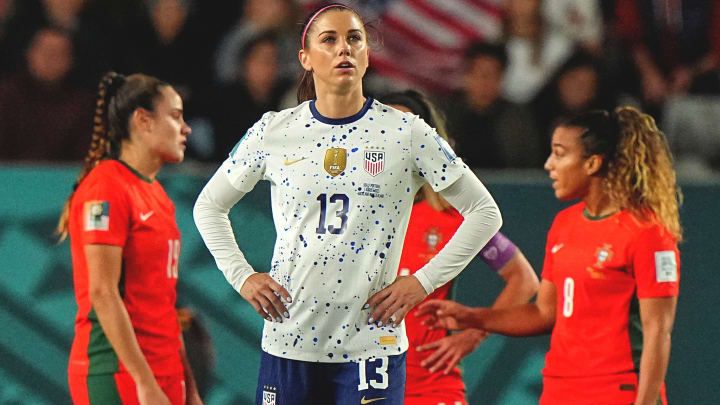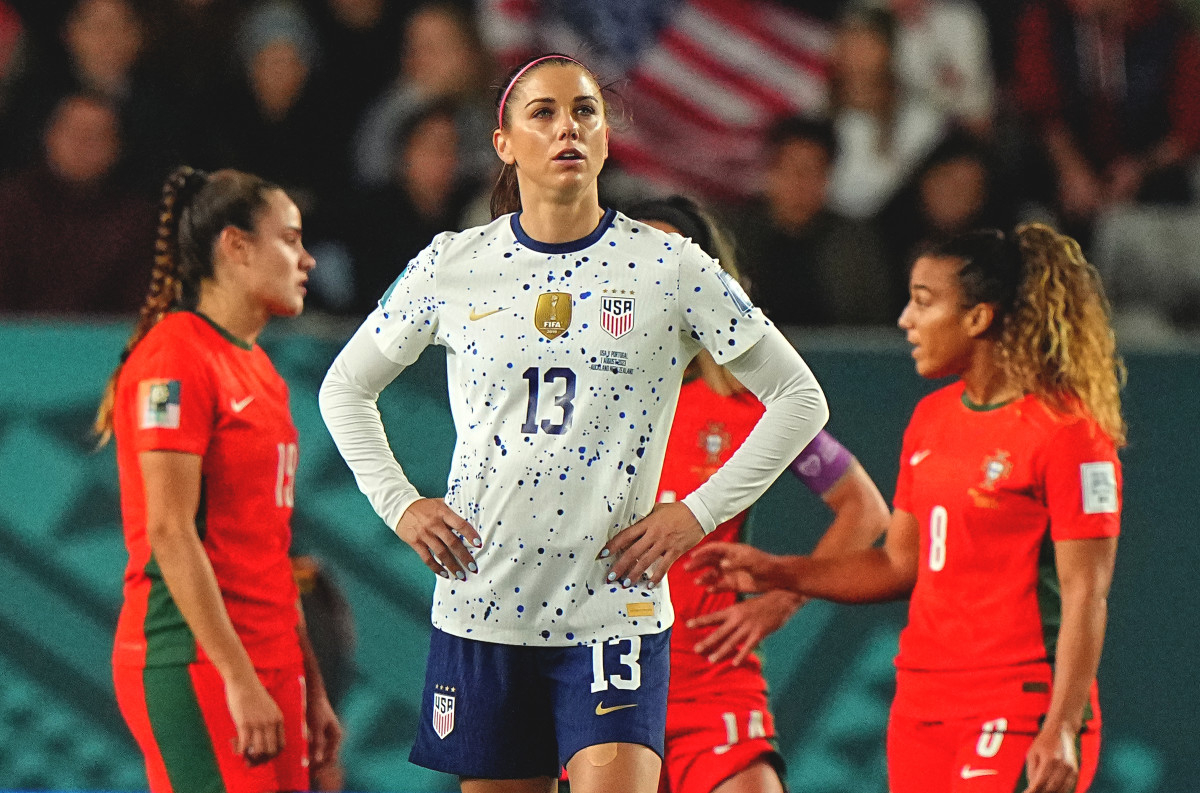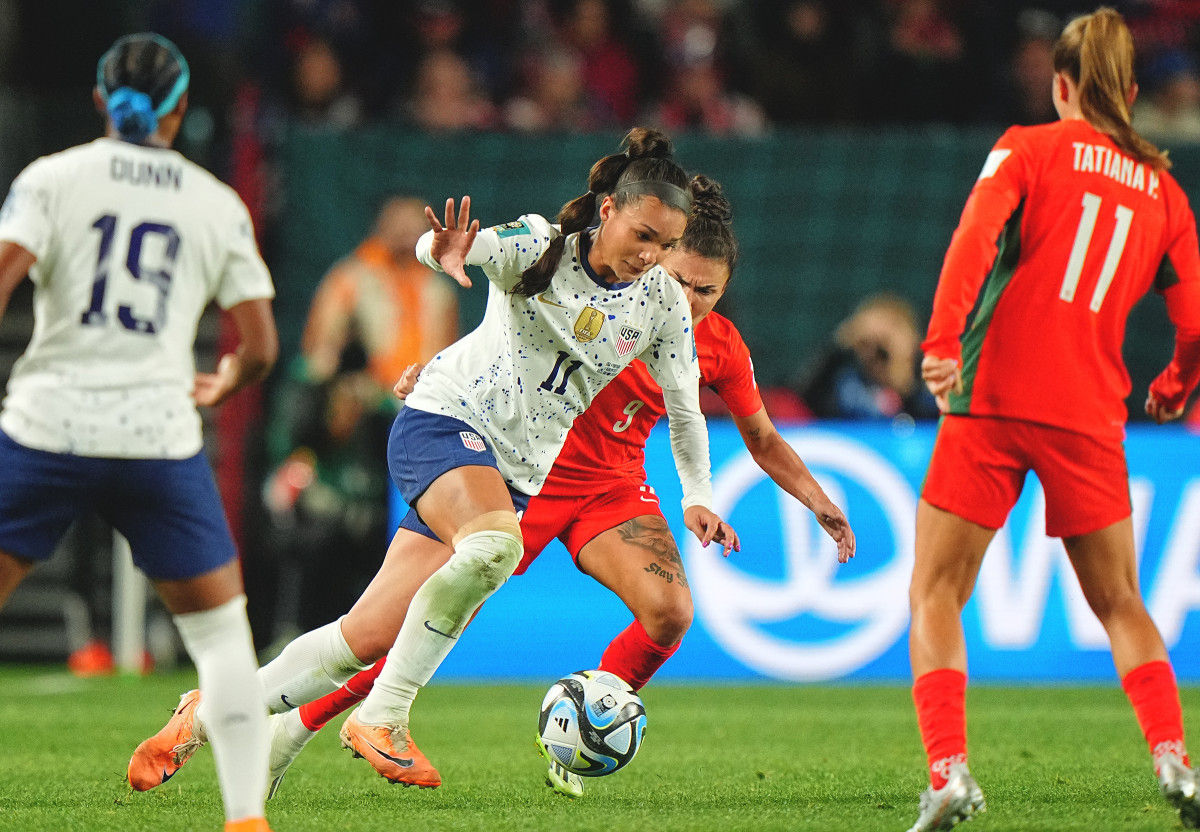What Happened to the USWNT That We All Expected?

The U.S. women’s national team is in a bad place as it arrives in a very good place: Australia, for a round-of-16 matchup against Sweden in the Women’s World Cup. The Americans could certainly upset the Swedes, but I wouldn’t wager on it, and, judging from their demeanor against Portugal a few days ago, neither would they. Nothing about their performance in the group stage indicates they can win four more games.
Getting inside the head of one person is hard enough. Getting inside 23 heads at the same time is far beyond my capabilities, though apparently well within Carli Lloyd’s. So I can’t possibly say what the Americans are thinking as they enter the Sweden game, and I would not assume every American is thinking the same thing.

What we can say is this: When last we saw the U.S. in action, it did not look like it expected to win. That was the jarring part of the Portugal game. The players looked uncertain throughout, and then they looked like they were playing not to lose, and, no matter the sport, teams that play not to lose usually end up losing. The U.S. was lucky to hang on for a tie.
Just six months after winning the SheBelieves Cup, the U.S. is playing the WhoBelievesAnymore Cup, and, if Sweden wins this one, you can expect a combination of outrage, hysteria, and demands for dramatic change. Well, we’ll get there when we get there, presuming the team’s performance takes us there.
In the meantime, you might wonder what happened to the team that is supposed to contend for its third straight World Cup.
That is the wrong question. It presumes this is the team that is supposed to contend for its third straight World Cup.
Obviously, the roster has turned over some in the last four years. That happens every cycle. But more importantly, the U.S. lineup against Sweden will be missing:
- Its best player, Mallory Swanson, who tore her left patellar tendon in April.
- Its captain and defensive stalwart, Becky Sauerbrunn, who pulled out of the World Cup in June because of a foot injury.
- Its star midfielder, Rose Lavelle, who is suspended for the game after getting her second yellow card of the tournament against Portugal. Lavelle was just working her way back to playing full games after injuring her knee in April.
Other prominent Americans, like Sam Mewis, Christen Press and Catarina Macario, are also injured and not in Oceania. But they have been injured for a while. The injuries this year put the U.S. in a position where, as coach Vlatko Andonovski said during the group stage: “This team is not just young. This team is a fresh team, a team that has not spent a lot of minutes together.”
That can be read as an excuse, but it is also a fact, and a relevant one. Logically, in an increasingly competitive event, a team with a lot of injuries and very little chance to build cohesion will have a hard time winning.
Andonovski has taken flak for making so few substitutions. But a counterargument is that every lineup change works against the goal he laid out during the group stage: “The more time they spend together, the better they’re going to get.”

The lack of time together does not affect everybody the same way, but it probably does affect everybody. Sophia Smith looked brilliant in the first game and not since. Trinity Rodman seemed like she might become a transcendent star in this World Cup, but she hasn’t played like one. Alex Morgan arrived as a better, more complete player than she has ever been, but she has struggled to do something she has done so well for her entire career: finish.
The Americans are saddled with the hardest part of being two-time defending champs, which is the pressure of expectations. But they don’t benefit from what is usually the best part of being two-time defending champs: the confidence that comes from having thrived together. When Andonovski turned to legend Megan Rapinoe in the second half of the Portugal game, the crowd roared, but Rapinoe’s performance only confirmed that the U.S. needs its young players to play like stars.
Criticism of Andonovski’s strategies and his players’ energy is fair. It is part of the deal, and maybe after the World Cup we will learn about deeply entrenched problems in the program that require fundamental changes. But it is also possible that it’s just too hard to win the World Cup when you’re hit by so many significant injuries so close to the competition. Maybe the players aren’t asking enough of themselves. More likely, under the circumstances, we’re asking too much of them.
